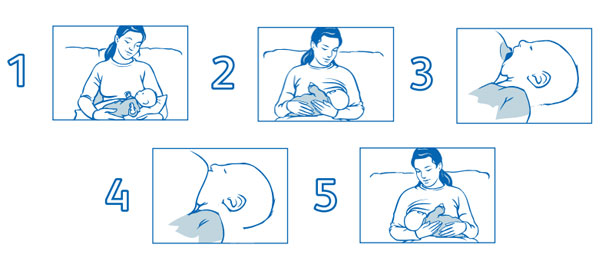 |
 |
|
 |
 |
 |
Shaping the future health of babies
Featured in this eNewsletter:
World Breastfeeding Week is at the beginning of August: we preview this year's theme
Breastfeeding Support for parents
Discover something new about breast milk from the Nestle Research Centre
Dear [*data('salutation') || 'Healthcare Professional' *],
Welcome to the August edition of our eNewsletter, aimed to keep you informed on some of the topics that are relevant to your practice in the field of infant nutrition.
This week hosts World Breastfeeding Week so we would like to celebrate breastfeeding mums and provide you with some breastfeeding resources that you may find useful, such as unbranded breastfeeding helpsheets in 8 different languages English, Arabic, Bengali, Gujarati, Punjabi, Polish, Urdu and Chinese.
We will also be showing you some of the day-to-day activities which take place at the Nestle Research Centre, this will help you understand why we have been leading baby nutrition research for over 100 years
Kind regards,
The SMA® Professional Team |
 |
 |
|
 |
World Breastfeeding Week urges better support for parents at work
This year World Breastfeeding Week identifies better support for parents at work as a key driver to increase the proportion of women who breastfeed. It calls for measures such as paid leave for both parents and workplace support to help create an enabling environment for breastfeeding.
As a leader in infant Nutrition, Nestlé recognises the importance that a maternity protection policy can play in protecting, supporting and promoting breastfeeding at home and in the work place. Nestlé’s global maternity policy includes: paid maternal leave; employment protection and non-discrimination; health protection in the work place; flexible working arrangements and conducive work environment to breastfeed e.g. breastfeeding rooms on our facilities.
|
|
 |
|
 |
 |
 |
Breastfeeding Support for parents
Through many years of clinical research and engagement with healthcare professionals, the
SMA Professional team recognise the public health benefits of increasing breastfeeding and are actively committed to supporting breastfeeding as the primary source of infant nutrition. While the rates of mothers initiating breastfeeding are rising, the proportion still exclusively breastfeeding at 6 months in the UK & Ireland as recommended by the Department of Health, is just 1%.1
As part of our commitment to breastfeeding, you will find a number of unbranded resources to help you to support parents on the SMA Professional website. These include help sheets for you to share with parents on a range of useful topics such as breastfeeding, breastfeeding positions, Nutrition in breastfeeding etc. in 8 different languages; English, Arabic, Bengali, Gujarati, Punjabi, Polish, Urdu and Chinese.
We hope you will find these an invaluable resource. |
|
|
|
 |
|
 |
 |
 |
|
 |
 |
 |
 |
®Registered Trademark.
IMPORTANT NOTICE: The World Health Organisation (WHO) has recommended that pregnant women and new mothers be informed on the benefits and superiority of breastfeeding – in particular the fact that it provides the best nutrition and protection from illness for babies. Mothers should be given guidance on the preparation for, and maintenance of, lactation, with special emphasis on the importance of a well-balanced diet both during pregnancy and after delivery. Unnecessary introduction of partial bottle-feeding or other foods and drinks should be discouraged since it will have a negative effect on breastfeeding. Similarly, mothers should be warned of the difficulty of reversing a decision not to breastfeed. Before advising a mother to use an infant formula, she should be advised of the social and financial implications of her decision: for example, if a baby is exclusively bottle-fed, more than one can (400 g) per week will be needed, so the family circumstances and costs should be kept in mind. Mothers should be reminded that breast milk is not only the best, but also the most economical food for babies. If a decision to use an infant formula is taken, it is important to give instructions on correct preparation methods, emphasising that unboiled water, unsterilised bottles or incorrect dilution can all lead to illness.
References
1. McAndrew et al (2012) Infant Feeding Survey 2010 Consolidated Report. Health and Social Care Information Centre, IFF Research. Available here. (Accessed 24/07/2019).
To ensure future mailings from SMA® Professional reach your mailbox, add smaprofessional@smaprofessional.msgfocus.com to your safe sender list.
Contact SMA® Nutrition | Terms & conditions
This email is intended for residents of the UK
Unsubscribe
ZTC4587/07/19
|
 |
 |
|




